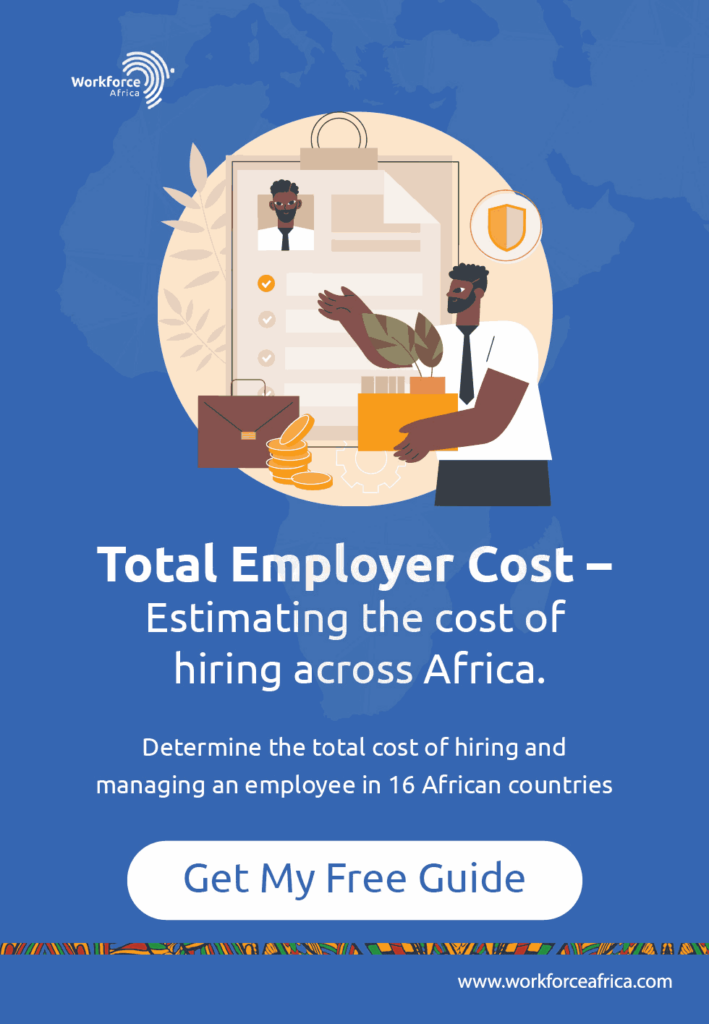

Offshoring is widely viewed as a necessary part of global business expansion strategy, and picking the right offshore partner determines success.
In this article, we'll delve into the important factor's businesses need to consider when choosing an outsourcing partner.
An offshore partner is an organisation or service provider located in a different country or geographical region from the primary business, with which a company collaborates or outsources various aspects of its operations.
Offshore partnerships are commonly formed to leverage cost advantages, access specialised skills, expand into new markets, or enhance operational efficiency.
Here are some benefits of offshoring that can enhance your company's performance and lead to better outcomes.
Due to the high cost of living in developed nations, sourcing skilled personnel at affordable rates can pose a challenge.
However, prime offshoring destinations like Africa boast a rich reservoir of skilled labour. Recruiting workers from Africa comes at a lower labor expense, owing to their comparatively lower cost of living compared to countries like the US and UK.
Furthermore, offshoring can slash or even eradicate recruitment costs altogether.
Continuous business operations can be achieved by leveraging an offshoring partner or service provider, allowing your company to function seamlessly around the clock, irrespective of time zone disparities.
With teams strategically located across different regions and time zones, your company can maintain operations 24/7; while you rest, your counterparts on the other side of the globe can be at work.
Expand your reach into untapped international markets by leveraging your offshore presence. With a subsidiary established in another country, you gain access to a diverse labour pool that can facilitate market exploration in various overseas territories.
An offshore workforce brings a better understanding of local markets, regional dynamics, and potential business challenges you may not know.
Are you interested in learning how to tackle the typical concerns that often come with working alongside offshore partners?
Below are the factors to consider for a successful outsourcing partnership
Cost
Cost refers to the money you need to spend or invest in something. When choosing an offshore partner, cost involves considering how much you'll need to pay for their services, including any additional expenses like setup fees or ongoing maintenance.
It's about understanding the financial implications of the partnership and making sure it fits within your budget, while also considering the value you'll get in return for your investment.
At Workforce Africa, we recognise the importance of achieving cost savings without compromising quality and efficiency.
Expertise and Experience
Expertise encompasses the offshore partner's depth of knowledge, skills, and experience in the specific services or tasks you require assistance with. It's not just about having general proficiency; rather, it's about possessing specialised expertise that directly aligns with your project needs.
When evaluating expertise, consider factors such as the partner's industry experience, technical capabilities, certifications, and past project successes. A partner with extensive expertise can offer valuable insights, innovative solutions, and efficient execution, ultimately contributing to the success of your project or business goals.
Cultural Fit
Cultural fit refers to the alignment between your company's culture and values and those of the offshore partner. It's essential to assess whether the partner's work style, communication norms, and organisational values resonate with your own.
A strong cultural fit fosters trust, mutual respect, and effective collaboration between both parties. It enhances communication, reduces misunderstandings, and promotes a shared sense of purpose and commitment to achieving common goals.
When considering cultural fit, look for compatibility in areas such as work ethic, communication style, decision-making processes, and attitudes towards teamwork and innovation. With Workforce Africa, we understand the critical role cultural fit plays when selecting an offshoring partner.
Our approach goes beyond merely matching skills and capabilities, we prioritise aligning values, work ethics, and communication styles between our clients and our team.
Flexibility
Flexibility pertains to the offshore partner's ability to adapt and respond to changing requirements, timelines, or circumstances. In the business environment, unforeseen challenges, shifting priorities, and evolving market demands are inevitable.
A flexible partner can adjust their strategies, resources, and workflows accordingly to accommodate these changes without compromising quality or timelines. They demonstrate agility in problem-solving, resource allocation, and decision-making, allowing them to effectively navigate uncertainties and seize emerging opportunities.
Flexibility enables seamless collaboration, promotes innovation, and enhances overall project resilience and success. When evaluating flexibility, consider factors such as responsiveness, willingness to accommodate changes, scalability of resources, and ability to incorporate feedback and iterate on solutions.
With Workforce Africa as your offshore partner, our commitment to flexibility extends beyond just operational aspects, we also prioritize open communication, responsiveness, and collaboration to seamlessly integrate with our clients' teams and workflows.
Quality of Talent Pool
Priorities offshore partners who are aligned with your needs and have shown capability in hiring and managing dedicated offshore teams, ensuring efficient project supervision beyond borders,,,, so you can focus on other areas of business innovation.
Service Level Agreement
When finalising a service-level agreement (SLA) with your outsourcing partner, ensure its terms are clear and well-defined to mitigate issues arising from unmet requirements and seek legal guidance for clarity and compliance if needed.
Data Security
This is a fundamental aspect to consider when selecting a global outsourcing partner. It involves safeguarding sensitive information, intellectual property, and data assets from unauthorized access, breaches, or misuse.
Businesses should evaluate the partner's security measures and protocols to ensure compliance with relevant regulations and industry standards. This includes assessing their data protection policies, encryption methods, access controls, and disaster recovery plans.
Additionally, businesses should inquire about the partner's track record in handling security incidents and their readiness to address emerging threats and vulnerabilities. A robust security framework not only protects confidential information but also instils trust and confidence in the partnership, fostering a secure and reliable working environment.
By partnering with Workforce Africa, businesses can be rest assured that their sensitive information remains safeguarded throughout the offshoring process. Our commitment to security ensures that data integrity, confidentiality, and compliance are upheld at every stage, fostering trust and confidence in our partnerships
Suggested Post: Top 5 Reasons You Must Offshore to Africa
Choosing the right outsourcing partner goes beyond merely seeking the most affordable option.
Instead, it's about finding a dependable partner who not only possesses the necessary skills but also shares your company's values and goals .
Are you looking for an offshore support service provider? Kindly click here to speak to us to partner with one of Africa’s best offshore service providers.